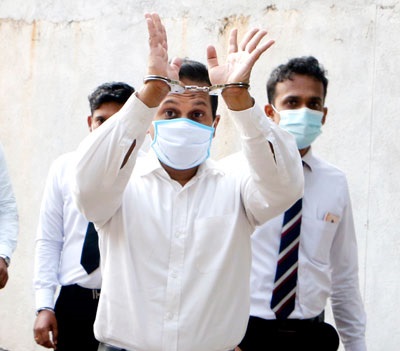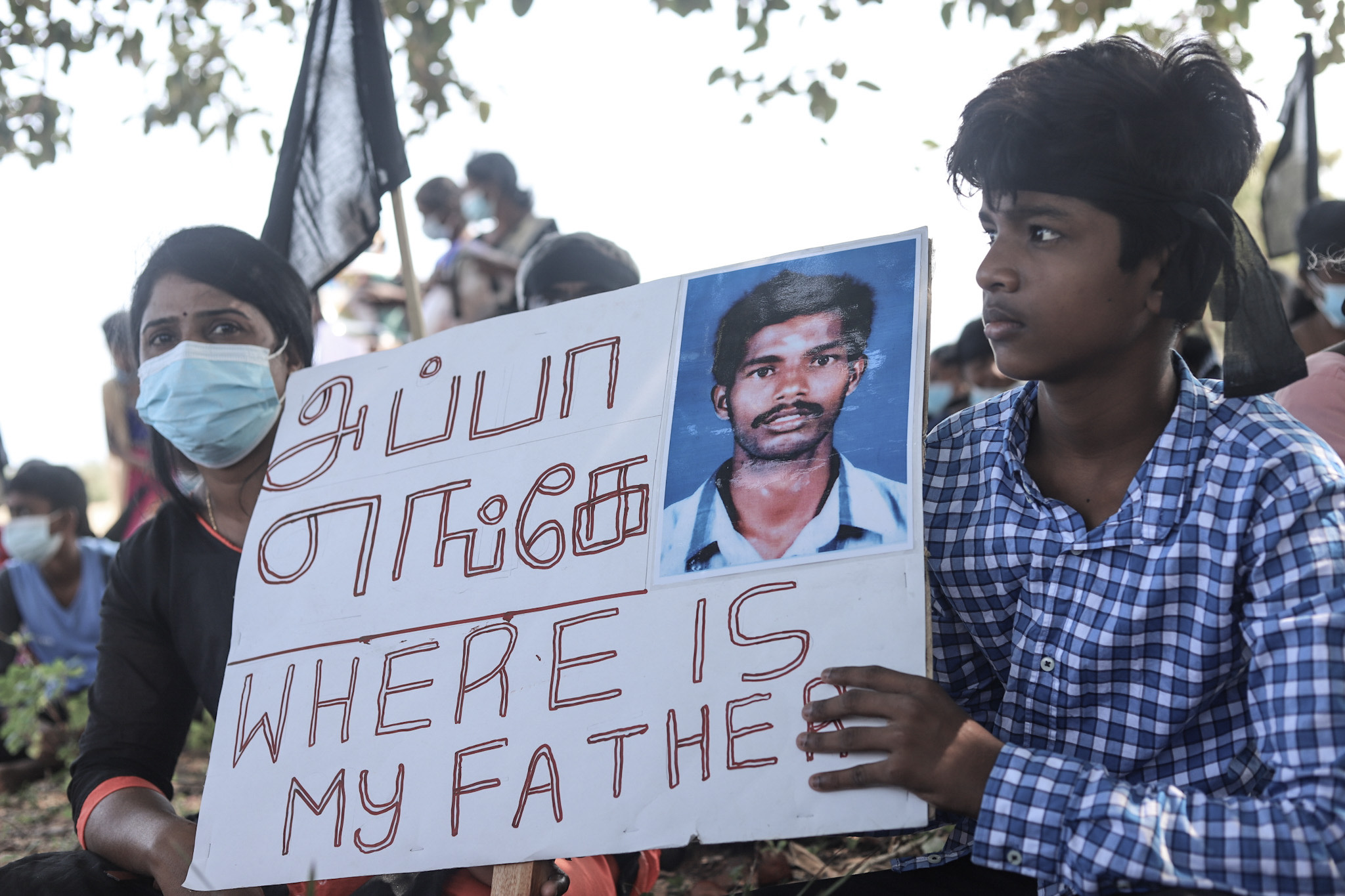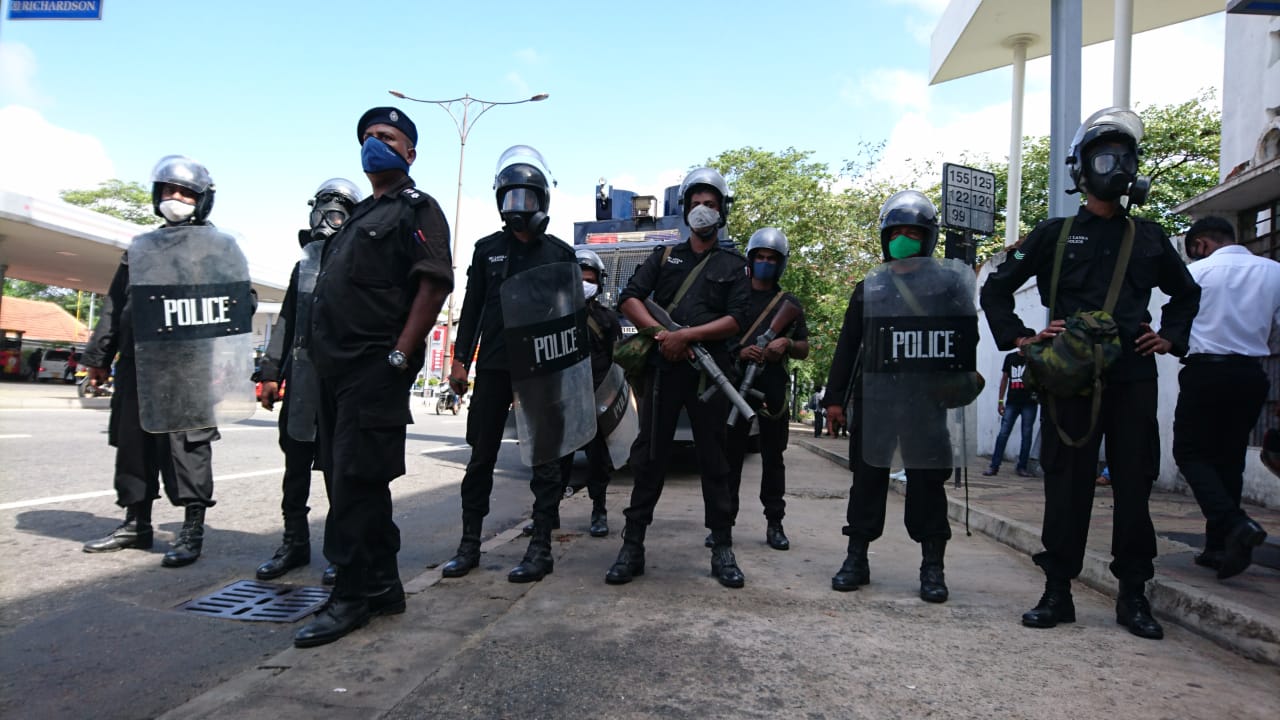
Detained Muslim lawyer Hejaaz Hizbullah finally walked out of the Puttlam High Court without handcuffs this morning, following almost 2 years in Sri Lankan detention under the much-criticised Prevention of Terrorism Act (PTA).
However, the lawyer has only been granted bail and Sri Lankan authorities can still detain and charge him under the draconian act, which for decades has been slammed by human rights organisations around the world.
To this day, dozens – mainly Tamils and Muslims – remain detained under the PTA.
‘A message to human rights defenders’
Hejaaz was initially detained by Sri Lanka’s Criminal Investigation Department on 14 April 2020 under the PTA, over dubious allegations that he aided the 2019 Easter Sunday attacks.
These charges later changed to allegations that he had promoted racial hatred, though Hizbullah had to spend 10 months in custody before being charged.
“We believe his arrest was a message to human rights defenders and civil society to instill fear and stop government criticism,” his wife Maram Khalifa told TRT World.
The detention of such a prominent lawyer gained worldwide attention, with Amnesty International declaring Hizbullah a prisoner of conscience in July 2021.
“Ever since he was arrested in April 2020, prosecutors have only brought baseless accusations against him,” said Yamini Mishra, Amnesty International’s South Asia Director, this week, who welcomed his release on bail. “Hejaaz is a respected lawyer and minority rights activist who should have never been detained in the first place.”
“While we welcome the developments in each case, hundreds of others remain in detention for charges related to ‘terrorism’, which the authorities have repeatedly used to target minority groups and state critics,” Mishra added.
“The Sri Lankan authorities must ensure that all those still detained under the PTA have access to fair bail hearings and release those who have not been charged with recognizable crimes under international law.”
Protestors in Batticaloa calling for Kokul's release last month.
“Hejaaz’s detention was terrible and he had a network that was able to mobilise and campaign for his release,” said a Tamil journalist based in the North-East. “Not everyone who has been arrested has that.”
The journalist, who asked not to be identified for safety reasons, pointed to the case of Murugupillai Kokulathasan, a Batticaloa-based journalist who was arrested on November 28, 2020, over allegations that he had published pictures of the Liberation Tigers of Tamil Eelam (LTTE) on Facebook.
Kokul, as he is fondly known, remains in Sri Lankan detention.
“Even Kokul has had protests and some international attention,” added the journalist, pointing to demonstrations calling for his release and a statement from Reporters Without Borders (RSF) which slammed his detention as “Kafkaesque”.
Many other cases however have not received the same attention, and dozens continue to be held in Sri Lankan prisons. Under the act, little information is passed on to relatives of those detained, with details such as the whereabouts and charges they are held under notoriously difficult to maintain.

Tamil families of the disappeared protest in Mullivaikkal last week.
Some Tamil families of the disappeared believe that some of their forcibly disappeared loved ones may still be held under the act despite having searched for years for the whereabouts of their relatives. They point to the fact that many of them were last seen in Sri Lankan custody.
On occasion, some Tamils have been quietly released after spending several years in Sri Lankan detention. In October 2021, a Tamil man from Amparai who was incarcerated as a teenager was released after being held for 12 years without charge. In December that same year, another 45-year-old Tamil man was released and acquitted of all charges after 15 years in detention.
However other Tamil political prisoners continue to languish in detention, usually under horrific conditions facing the risk of ill-treatment and torture.
In September 2021, for example, a Sri Lankan state minister reportedly forced Tamil inmates detained in the Anuradhapura prison to kneel down at gunpoint, as he entered the jail drunk and with his entourage.
Recent years has seen the use of the PTA ramp up under the presidency of Gotabaya Rajapaksa.
Tamil National Alliance (TNA) MP Sivagnanam Sritharan told Sri Lanka’s parliament in October 2021 that, “39 [Tamils were] arrested in North-East in last three months” alone.
Repeal, not amend

Sri Lankan police in Colombo last year.
As increasing numbers continue to be detained, it has been followed by intensified calls that the law be completely repealed.
“[Sri Lanka] must also repeal the PTA and issue an immediate moratorium on its use, as repeated attempts to amend the law have proved futile,” said Mishra this week.
Human Rights Watch (HRW) also released a 59-page report on the act this week, calling on Sri Lanka’s international trading partners to consider imposing targeted sanctions on officials accused of rights abuses and to leverage trading schemes in order to pressure Colombo to comply with human rights obligations.
Whilst successive Sri Lankan governments have pledged to amend the act, little action has been taken. Even under the previous Sirisena regime which curried favour with Western states, several Tamil diaspora groups remain proscribed as “terrorist organisations”. Under Rajapaksa that list of banned Tamil has grown and the use of the PTA has expanded.
“The PTA is also used as a weapon to intimidate, threaten and stifle dissent, media freedom and civil society activities, especially in the Tamil majority North as well as the East of the country, including in the guise of countering terrorism financing,” said Ambika Satkunanathan at the Tom Lantos Human Rights Commission in November 2021.
“At present we have a government that has little respect for the rule of law, due process or the human rights of its citizens. A regime that has discriminatory anti-minority policies and practices. When the regime is at a loss as to how to deal with the messy and complex business of governance it turns to militarized, repressive means to deal with a conflict or crisis. In this context, the PTA and other counter-terror methods become powerful tools of oppression in the hands of the government.”
Pressure has now grown on the international community to ensure Sri Lanka repeals the law.
The United Nations High Commissioner for Human Rights has repeatedly criticised the PTA, and with another session at the UN Human Rights Council on the horizon, attention has been drawn once more to Sri Lanka’s human rights record.
“The “Geneva Effect” in action,” tweeted Alan Keenan of the International Crisis Group (ICG) in response to news of Hizbullah’s bail. The Sri Lankan government has several times previously carried out a flurry of moves in the weeks before a UN session in Geneva, in an effort to demonstrate “progress” on human rights.
“These superficial actions should not distract from the reality of the situation on the ground,” said Shankar, a British Tamil human rights activist. “Hejaaz should never have been arrested in the first place, and neither should have the dozens of others who languish in detention.”
“The international community needs to stop pandering to a regime that has demonstrated time and again a complete disdain for human rights. The time for polite words of encouragement has long passed. Tough action is needed.”
We need your support
Sri Lanka is one of the most dangerous places in the world to be a journalist. Tamil journalists are particularly at threat, with at least 41 media workers known to have been killed by the Sri Lankan state or its paramilitaries during and after the armed conflict.
Despite the risks, our team on the ground remain committed to providing detailed and accurate reporting of developments in the Tamil homeland, across the island and around the world, as well as providing expert analysis and insight from the Tamil point of view
We need your support in keeping our journalism going. Support our work today.
For more ways to donate visit https://donate.tamilguardian.com.

.JPG)
